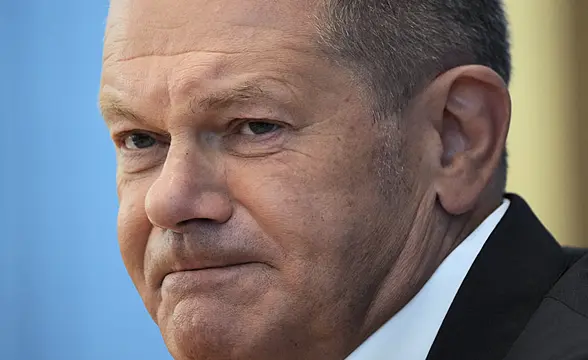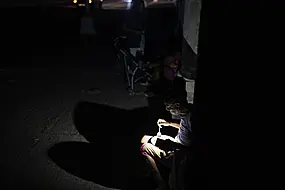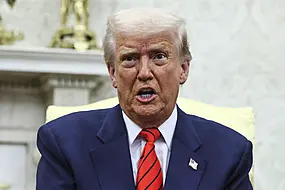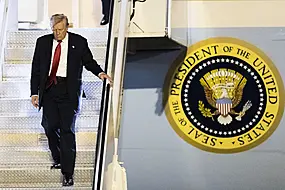German Chancellor Olaf Scholz pledged his government won’t leave citizens freezing or unable to pay their energy bills but acknowledged his country faces considerable challenges in the coming months.
Rising fuel costs sparked by Russia’s war against Ukraine have put severe financial strain on many in Germany and beyond, raising concerns about a possible winter of discontent.
“We will do everything to help citizens get through this difficult time,” Mr Scholz told reporters during his annual summer news conference in Berlin.
He cited numerous measures the government already adopted to ease financial hardships for residents and to secure alternative energy supplies to replace Russian oil, coal and gas.
Asked whether he feared that frustration could boil over into violent protests, Mr Scholz replied, “I don’t believe that there will be unrest … in this country.” He cited Germany’s strong tradition of social welfare.
But the chancellor acknowledged there would be “many demands” during the winter as the country tries to reconcile energy shortages with long-standing plans to phase out nuclear power and fossil fuel use.
The German government has given utility companies a green light to reactivate shuttered oil and coal power plants as part of efforts to reduce the nation’s dependence on Russian natural gas.
Mr Scholz said the government is also considering extending the lifetime of the country’s three remaining nuclear plants beyond the end of the year, even as it takes steps to massively ramp up the generation of renewable energy in the short and medium term.
“The most important thing we can do to achieve (energy) sovereignty in the future and simultaneously do what’s necessary for our economic future is to expand renewable energy and protect the climate,” he said.
Mr Scholz appeared to acknowledge that Germany’s past reliance on Russian energy had been a mistake, and that the country should have diversified its supplies sooner.
He declined to say whether he personally regretted Germany’s continued purchase of Russian gas and whether it gave Berlin a heightened responsibility to support Ukraine in defending itself against Russia’s military assault.







